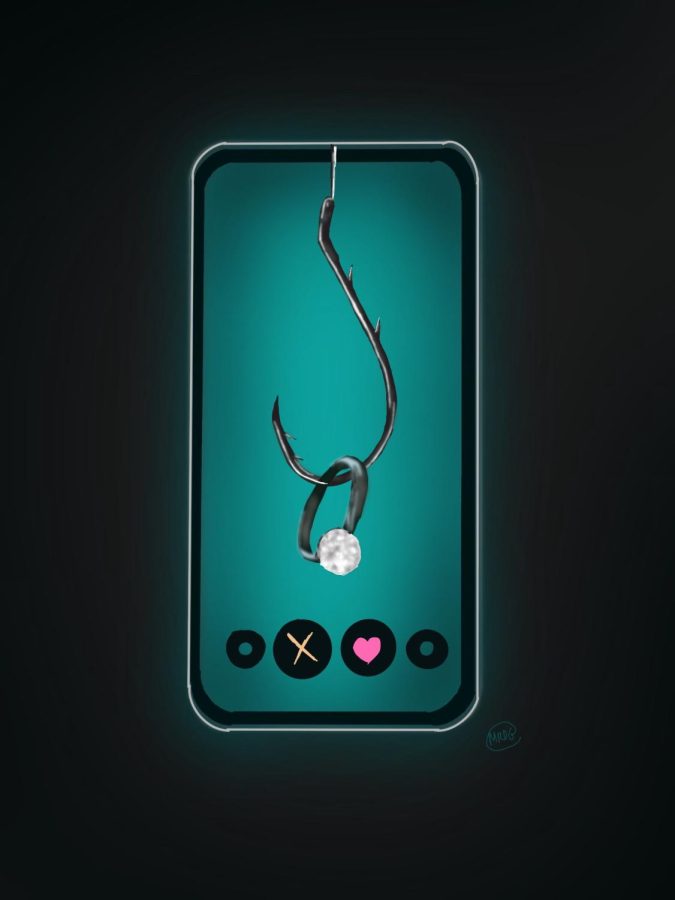A tale of fake love in Netflix’s ‘The Tinder Swindler’
February 18, 2022
Netflix “The Tinder Swindler,” is now the first documentary to top the streaming platform’s weekly film charts in the United States.
The movie, directed by Felicity Morris, follows the true-crime story of the so-called “Tinder Swindler,” also known as Simon Leviev, a man whose modus operandi consisted of using the famous dating app Tinder to deceive women and take their money.
Deception on dating apps such as Tinder are nothing new. Multiple studies show that while creating a profile, people tend to depict traits that to make themselves more appealing and approachable than they are.
Many users lie about their appearance, height, weight, or their interests and daily routines. Commonly, online daters create new personas — people who are not totally unlike themselves but a little bit altered in certain aspects.
However, the lies of Leviev, who was born Shimon Hayut, go beyond that. He not only changed his name, but also created an entirely new life.. Taking the last name of a notable con man from the diamond industry as if he was his very own son, he faked being an extremely busy man whose life revolved around going on business trips all across the globe while escaping from “his enemies.”
The narrators of the story are Leviev’s very own victims. Through interviews, Cecilie Fjelløy, Pernilla Sjöholm and Ayleen Koeleman describe their individual experiences with Leviev, detailing how they met him on Tinder. They found him a rather interesting and handsome man and their relationships quickly escalated as Leviev gave them a false sense of stability, trust and love.
As the stories of the three women unfold individually, more is revealed about the nature of Leviev’s swindling, as he uses other women’s money to build trust in his remaining victims.
The viewers get a glimpse into his tricks, as he manipulates his dates into believing he truly loved them and convinces them there is a future together.
He also instilled fear in them, especially while discussing “his enemies” — people who apparently were trying to harm him because of his money and diamond empire.
While some women found different endings to encounter, there was one common theme throughout their stories, each of them lived a real time horror movie.
The director’s focus on this documentary is clearly to condemn Leviev for his crimes and make him accountable for them by putting his name, his face and his story out there for the world to see.
At times, during the two-hour long documentary, the life of Leviev looked like something closer to a poorly written mafia-based fanfiction from some internet forum than reality. But love is blind, and the victims cannot be blamed for not seeing red flags.
With the hashtag #TheTinderSwindler on Twitter, many viewers shared their reactions to the film. Some people simply shared their honest reactions to the movie, while others victim-blamed Fjelløy, Sjöholm and Koeleman and the rest of Leviev’s victims, tagging them as gold-diggers and or blaming them for poor judgment.
In a world of individualism, workaholism and the Internet, people have found it hard to meet their significant others — or to just meet new people with no romantic implications — through the conventional means of face-to-face interactions. Just like Fjelløy stated in the documentary, dating app users still dream of finding their Prince Charming. Tinder and other dating apps are just a new tool to help them write their fairytale.
The people to blame here are not the hopeless romantics who have adapted their romantic interactions to modern times, but the people like Leviev who take advantage of them.








